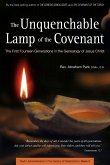Rohrer challenges the traditional interpretation of the decline of the Congregationalists. Drawing heavily on unpublished manuscripts, the author shows that, rather than failing to adapt to the democratizing culture of the western migration, they were in fact aggressive frontier evangelists. In the course of proving this, Rohrer overturns many generalizations about the Congretationalists, and challenges conventional wisdom about church growth and religious declension.
In 1774 the Congregationalists were the largest religious group in America; by 1830 they ranked only fourth. Scholars have advanced various explanations for this decline. Most commonly, they have blamed an elite, reactionary clergy unable to adapt themselves to the democratizing culture of the western migration. This book challenges the reductiveness of that traditional interpretation. With hundreds of letters, diaries, field reports, and sermons at his disposal, James Rohrer examines the background and evangelistic style of the frontier missionaries to show that Congregational missionaries took the frontier seriously, adapting themselves to its requirements. They failed to flourish numerically, Rohrer argues, in part because they were too demanding in their ideal of the pure church. This finding flies in the face of the currently fashionable theory that strict, sectarian groups thrive precisely because they are stricter and more sectarian. As the first full-length treatment of the Congregationalist response to frontier democracy, Keepers of the Covenant will interest church historians and students of early republican America, as well as sociologists and anyone concerned with the decline of the Protestant mainline.
In 1774 the Congregationalists were the largest religious group in America; by 1830 they ranked only fourth. Scholars have advanced various explanations for this decline. Most commonly, they have blamed an elite, reactionary clergy unable to adapt themselves to the democratizing culture of the western migration. This book challenges the reductiveness of that traditional interpretation. With hundreds of letters, diaries, field reports, and sermons at his disposal, James Rohrer examines the background and evangelistic style of the frontier missionaries to show that Congregational missionaries took the frontier seriously, adapting themselves to its requirements. They failed to flourish numerically, Rohrer argues, in part because they were too demanding in their ideal of the pure church. This finding flies in the face of the currently fashionable theory that strict, sectarian groups thrive precisely because they are stricter and more sectarian. As the first full-length treatment of the Congregationalist response to frontier democracy, Keepers of the Covenant will interest church historians and students of early republican America, as well as sociologists and anyone concerned with the decline of the Protestant mainline.








